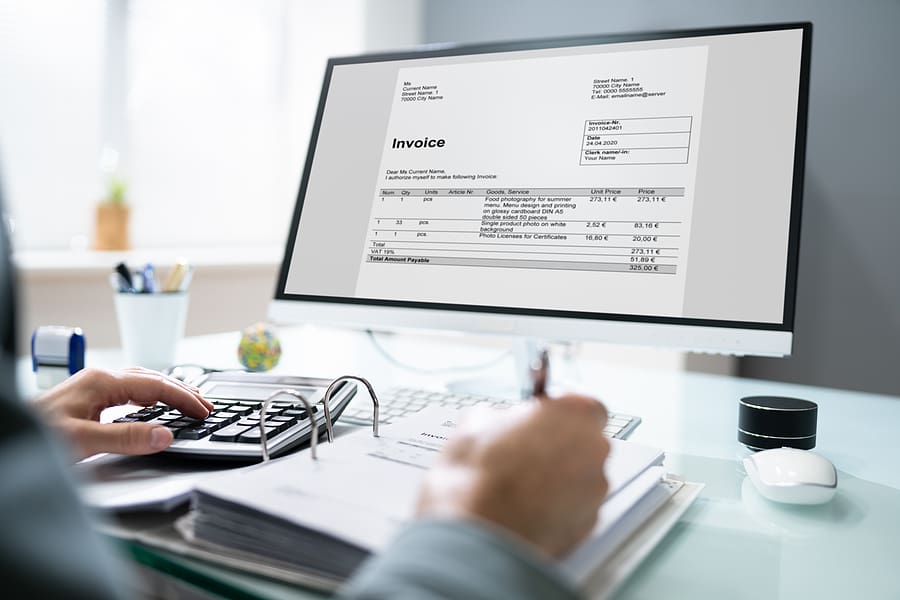Tips for Managing, Organizing, and Storing Business Receipts
Organization is essential to the success of any business. Bookkeeping tasks can quickly become overwhelming, but allowing yourself to become disorganized can cause significant issues down the road when you are working to reconcile your business finances. Handling the bigger tasks may be easier for small businesses to manage, either by outsourcing to bookkeeping professionals or creating a schedule to keep on top of bookkeeping tasks, but the smaller tasks, such as receipt management, can quickly spiral out of control without an effective receipt management process in place. Finding a system that works for you is the best way to stay on top of your business receipts.

Digital Receipt Management
Managing full size paperwork in a filing system can be a challenge, but managing different styles of receipts can be overwhelming. In this case, there are many advantages to going paperless. Using apps and software to digitize receipts will cut down on clutter, reduce the risk of losing important information, and will ensure that everything can be quickly found when needed. Even without using an app or software, you can easily digitize receipt storage simply by using the camera on a smartphone, saving the image of the receipt as a jpeg, pdf, or png, and organizing the images in your cloud-based storage. The advantage of using an app or software program is the ease of organizing and finding receipts later.
Establishing a Receipt Organization System
Whether you choose to keep your physical receipts or opt to convert receipts to digital versions, they will still need to be organized. Many apps and software programs designed for receipt management will help you do this, but it is possible to do on your own. Create a structured filing system that categorizes receipts for easy retrieval later on. Receipts can be categorized by date, expense type (travel, office, etc.) and if receipts are tied to a particular client. Receipts should be labeled clearly in their filing system for easy retrieval. If, for example, you are looking for expenses associated with a particular client, that client should have their own file, and within that file, additional categorization by project, date, or expense type. Make sure that every expense is defined and that the receipts submitted are accurate.
Regular Review and Logging
Receipts can pile up quickly, so every receipt should be logged promptly to avoid any potential backups. In addition to avoiding a backup, regularly reviewing receipts can provide a far clearer view of your spending and current financial picture. Set aside a time weekly or monthly (quarterly is a possibility if the volume of your receipts is manageable, but this frequency is not possible for most businesses). Make sure that you are able to dedicate enough time to give each receipt the attention needed. Putting time on your calendar on a recurring basis is the best way to ensure that you will always have the time for receipt review and will not feel rushed.
Utilizing Cloud-Based Storage
Keeping physical receipts can provide a significant challenge. Not only will you need to have the physical space to store receipts in an organized manner, but you will need to make sure that the receipts are stored securely. In addition, many receipts will deteriorate quickly, making them difficult to read and impossible to use for reconciliation.
Utilizing cloud storage for receipt images can solve many of these problems. When you log receipts digitally and then securely destroy the physical copy, you can trust in the security of your cloud-based storage and will know the receipt will be there to look back on whenever needed. Most receipt organization apps and software will offer this option. If you do need to keep physical receipts, make sure they are securely stored and organized in clearly labeled folders or envelopes, and make sure they are protected from fading or damage by keeping them protected and avoid overhandling.
Integrating Receipts with Accounting Software
Syncing receipts with the accounting tools you use to manage your business is the best way to keep all your finances organized and under control. Many bookkeeping and accounting programs offer a way to seamlessly integrate receipt management for efficiency, and it is a good bookkeeping practice to take advantage of the full program, including receipt management. Accounting software can help categorize receipts and integrate the data from the receipts into the correct financial statements.
Retention Guidelines and Disposal
Determining how long to keep receipts can be confusing. In general, it’s best to follow the IRS auditing rules, which means that you need to keep business receipts for at least three years in case you need to show proof of purchase or sales, although in some cases you may need to keep receipts even longer. For expenses that are less than $75, the IRS has stated that you do not need to save the receipt, however, many businesses will choose to keep these receipts organized in their system anyway. After the audit period has passed, you can securely destroy your receipts. Paper receipts can be shredded with a secure shredding service, and electronic receipts can be securely deleted from the cloud.
Employee Training and Policies
You may understand your responsibilities as a business owner, but you also need to make sure your employees are aware of and compliant with your receipt policies. After developing a clear policy for receipt submission and organization, make sure that all employees are well advised in the policies and trained in the procedures.
As a profitable business, keeping accurate records is essential to your success. While managing receipts may seem overwhelming, there is a good reason to make sure that all your expenses are tracked and accounted for. Although there are plenty of best practices that allow you to manage your receipts on your own, there are ways to take some of the pressure off you as the business owner. Using a bookkeeping service can help you manage your receipts, and automating some of the tasks can be helpful as well. With the right systems in place, you can know that your records are accurate, easy to find, and well-organized. To learn more about how we can help, contact In Balance Bookkeeping today and ask about our business services.






